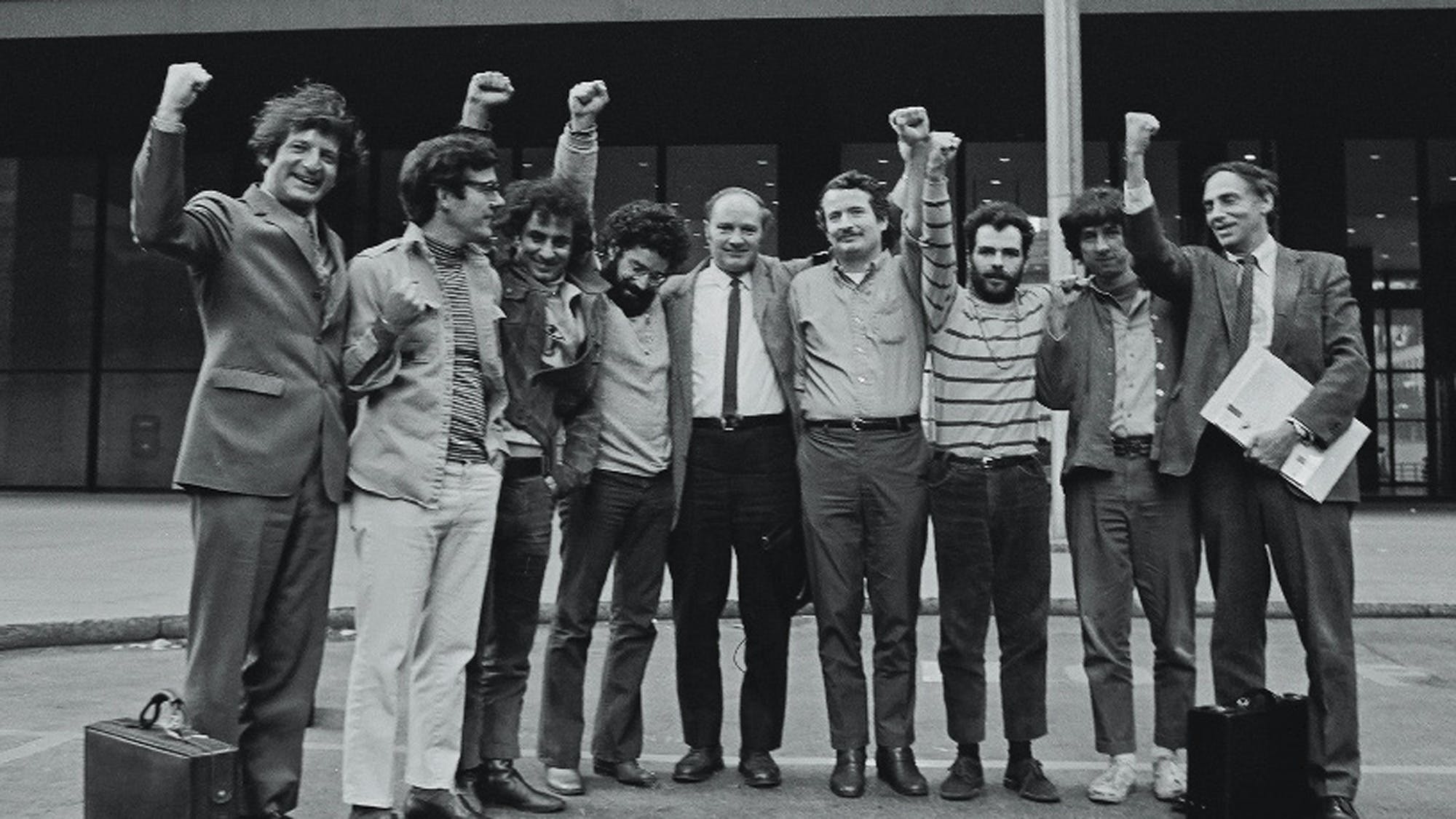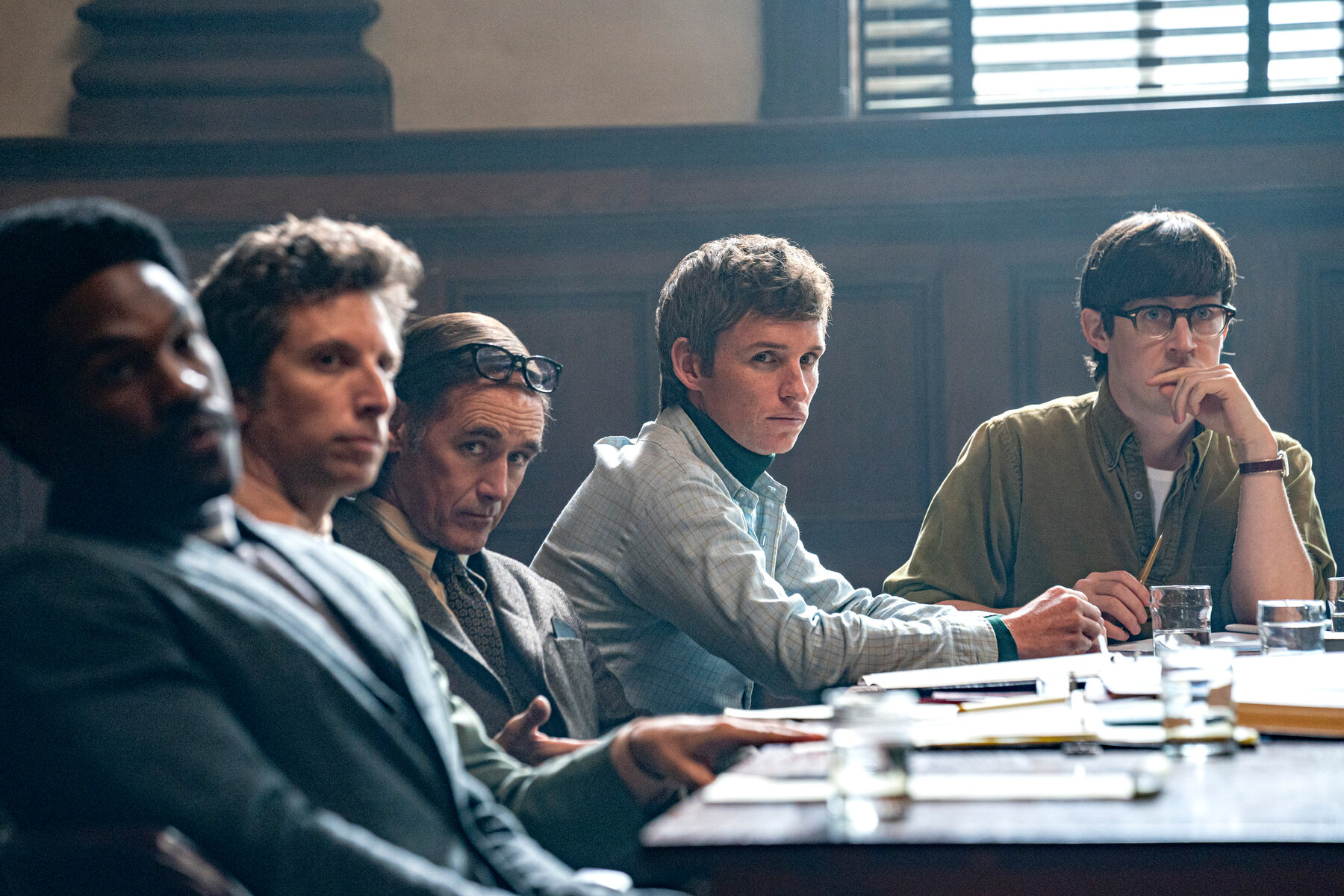‘I’ve never been on trial for my thoughts before.’
Aaron Sorkin’s sophomore effort The Trial of the Chicago 7 hit Netflix and select theatres this week. The Molly’s Game director takes aim at a more political subject matter, something he is no stranger to, but is it what we really need right now?

Sorkin, primarily known for his screenwriting prowess, had his first big break with A Few Good Men back in 1992 which he wrote on a pile of cocktail napkins while working at a Theatre, crafting the iconic line “You can’t handle the truth!” barked at Tom Cruise by Jack Nicholson, in that process.
Since then he has written 9 films including Steve Jobs, The Social Network and Moneyball, directed 2 of them and won an Oscar for his incredible screenplay for The Social Network.
He also served as the creator and writer for the first four seasons of the Emmy award winning series The West Wing, hence the background in politically driven narratives.
The Trial of the Chicago 7 centres around 8 leaders of various activist groups that were denied permission to protest at the 1968 Democratic Convention in Chicago amidst the Vietnam War, and were arrested and put on trial when they showed up anyway.

According to Sorkin, the film was originally pitched to him back in 2006 by Steven Spielberg, who was attached to direct the project for the majority of its pre-production. Cast member Sacha Baron Cohen has also been attached to star in his role since 2007.
The film is heavily charged with tension, intrigue and ultimately frustration. That signature frustration comes from the injustice faced by the accused at the hands of the Judge, who serves as the villain of the film and is played meticulously by The Americans actor Frank Langella.
There are multiple scenes where the Judge commits acts more horrible than anything inspired by the protestors in question, with a quantity so high it’ll make you want to turn the film off, and with Netflix acting as distributor you always have that option (though, as always, I recommend you seek this in theatres).
What keeps the audience engaged is exactly the same as what may disengage it, that inherit frustration with an old system and the audience’s desire to see that injustice come to an end.
The film is filled with almosts and maybes when it comes to the clearing of their names, with debates and arguments flying across any room the characters seem to inhabit, as they pit against one another in a fight for the same result while imploring different ideologies in that signature Sorkin style.
Another frustration, somewhat unintentional perhaps, is caused by the treatment of certain characters and storylines that are left unfulfilled or feeling tacked on, an injustice exercised by the filmmakers in this sense.
Bobby Seale, leader of the Black Panther Party in the film and played by Yahya Abdul-Mateen II of Aquaman fame, a character rich with opportunity to tell a meaningful story of racial inequality, is one such instance that comes across as token and a last minute add-on that detracts from the main plot that Sorkin continuously jumps back to and sticks with, eventually. This is even addressed by the character in the film:
‘There are eight of us here. There are signs out there that read “Free the Chicago 7”. I’m not with them. And speaking frankly the US attorney wanted a Negro defendant to scare the jury. I was thrown in to make the group look scarier.’
Sorkin also employs real life footage of the riots that took place in Chicago at the time and match-cuts them in with the action of his own film. In some films, this may come across as “tacky” or “preachy”, but in this particular case it lurks as a muted gut punch to the audience and serves to remind what we are watching is not to be taken lightly or forgotten anytime soon.
The film is also acted brilliantly by a cast of new and familiar faces, such as the aforementioned Sasha Baron Cohen, Fantastic Beasts’ Eddie Redmayne, Bridge of Spies’ Mark Rylance, 500 Days of Summer’s Joseph Gordon-Levitt and Succession’s Jeremy Strong. There’s even a surprise appearance from an A-Lister that I will let you discover for yourself.
Sorkin takes the unjust trial of the Chicago 7 and gives the conflict a passable resolution, while leaving a lot of lingering questions and leading the audience on tangents to nowhere from time to time. However, the central question of “is anyone truly innocent?” begs an answer left to the viewer in a way that will have you philosophising for days after.
Watching this film is worth it for the performances alone, but with all the current political and social issues in our world today, is the story of a trial from the 60’s the story we need to hear right now? I’ll let you answer that for yourself.
The Trial of the Chicago 7 is out on Netflix and in theatres near you. Check out the trailer below:
Subscribe to FIB’s Weekly Alchemy Report for your weekly dose of music, fashion and pop culture news!







